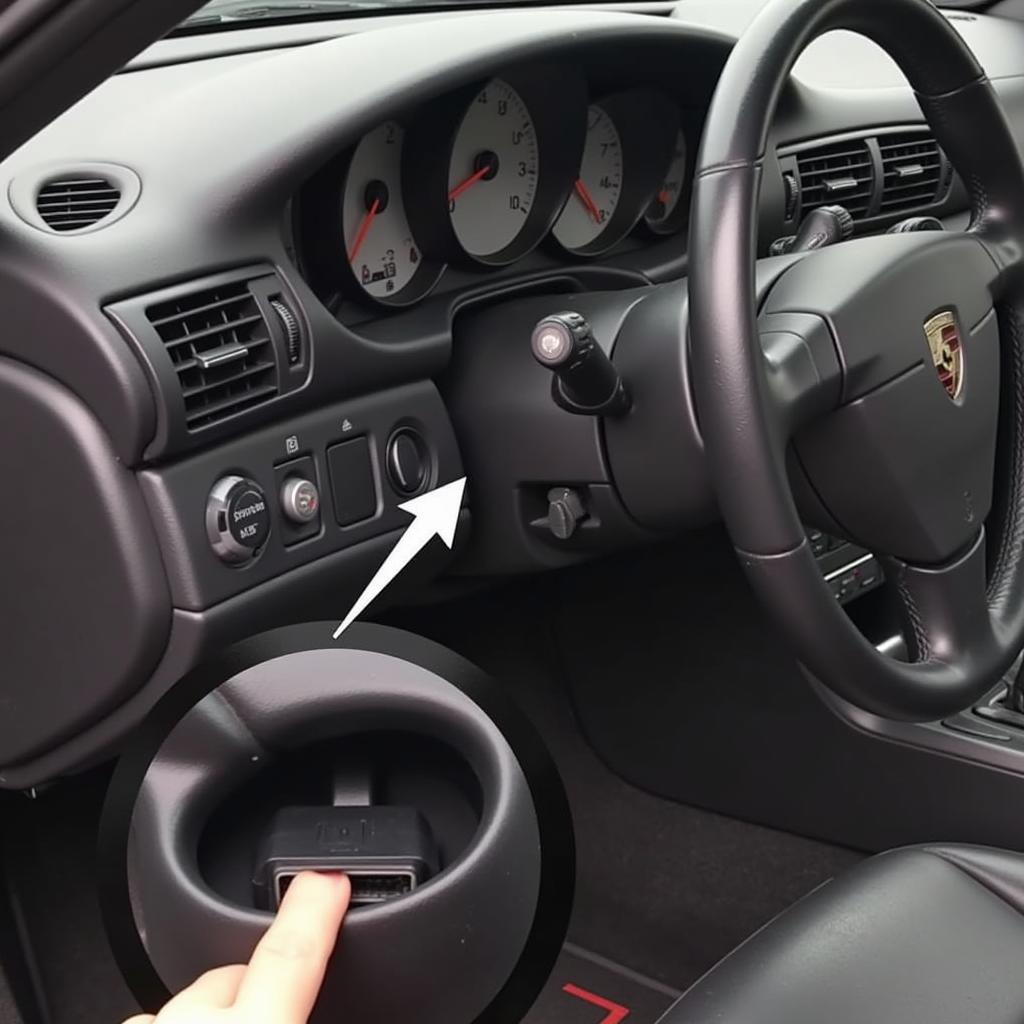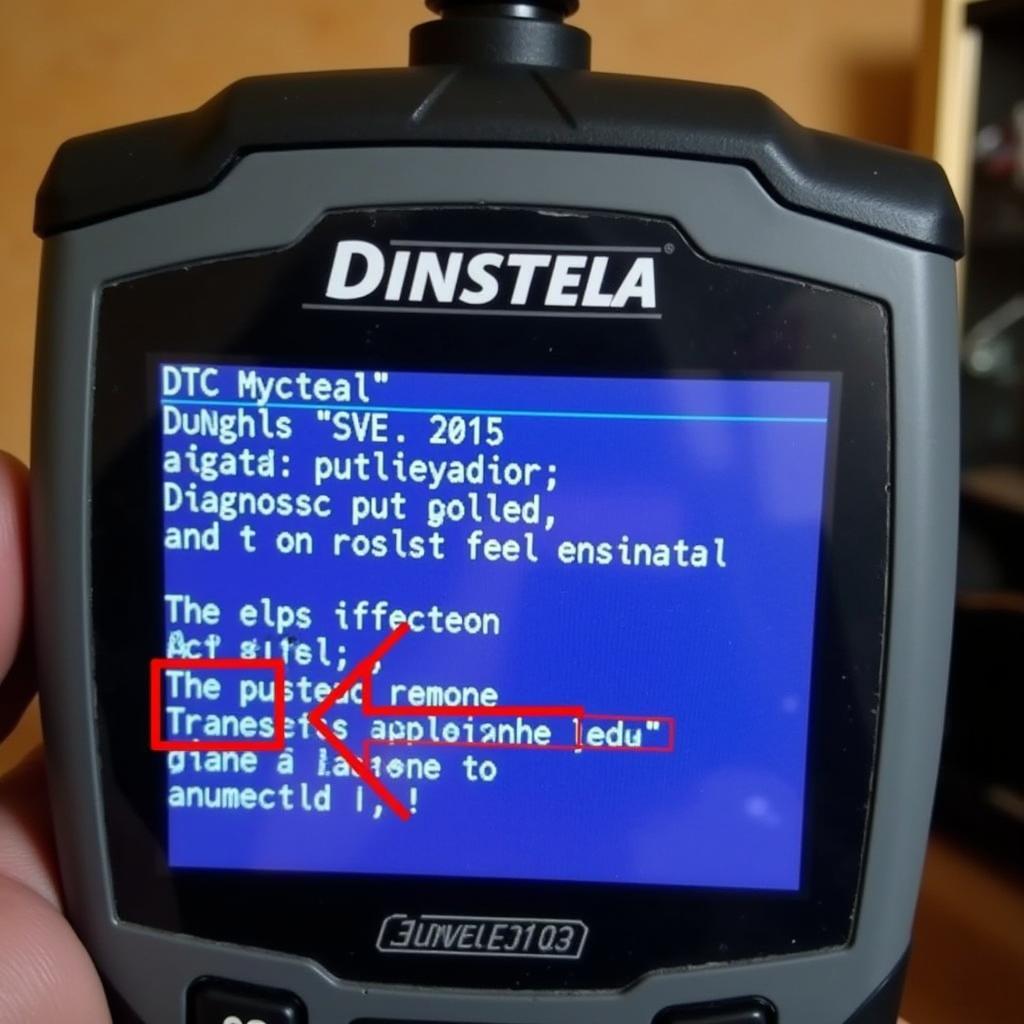In the realm of automotive diagnostics, car scanners have evolved from rudimentary tools to sophisticated devices capable of unraveling the complexities of modern vehicles. But with a plethora of options flooding the market, finding the best car scanner for your needs can feel overwhelming. This comprehensive guide will navigate you through the intricacies, empowering you to make an informed decision.
Understanding Car Scanners: The Basics
Before we delve into the specifics, let’s demystify the fundamental question: what is a car scanner? Also known as OBD (On-Board Diagnostics) scanners, these devices act as a communication bridge between your car’s computer system and you. They retrieve diagnostic trouble codes (DTCs), which are essentially error messages stored by your car’s ECU (Engine Control Unit). These codes provide insights into potential issues, ranging from minor sensor malfunctions to more serious engine problems.
[image-1|types-of-car-scanners|Different Types of Car Scanners|This image showcases the three main types of car scanners: basic code readers, mid-range scanners with enhanced functionalities, and professional-grade scanners with advanced features.]
Why You Might Need a Car Scanner
Owning a car scanner is akin to having a personal mechanic at your fingertips. Here are a few compelling reasons why:
- Diagnose Check Engine Light: The dreaded “check engine” light can signal a myriad of issues. A car scanner can pinpoint the exact cause, saving you from unnecessary trips to the mechanic.
- Monitor Vehicle Performance: Beyond diagnostics, many scanners offer real-time data on various parameters like engine speed, coolant temperature, and fuel pressure, allowing you to monitor your car’s health proactively.
- Reset Warning Lights: Once you’ve addressed an issue, a car scanner can reset warning lights, confirming the problem is resolved.
- DIY Repairs and Maintenance: For the mechanically inclined, car scanners are essential for performing DIY repairs and routine maintenance tasks.
[image-2|car-scanner-in-action|Using a Car Scanner for Diagnostics|The image illustrates a car owner using a car scanner to diagnose a check engine light. The scanner is plugged into the OBD-II port, and the screen displays the diagnostic trouble code.]
Types of Car Scanners
Car scanners come in various shapes and sizes, catering to different needs and budgets.
1. Basic Code Readers
As the name suggests, these entry-level scanners primarily read and clear basic DTCs. They are budget-friendly and ideal for car owners looking for simple diagnostics.
2. Mid-Range Scanners
These scanners offer a wider range of features, including live data streaming, freeze frame data (a snapshot of the vehicle’s parameters when a fault code was stored), and ABS (Anti-lock Braking System) diagnostics.
3. Professional-Grade Scanners
Primarily used by experienced mechanics and professional technicians, these high-end scanners boast advanced functionalities such as bi-directional control (allowing you to activate certain vehicle components), programming capabilities, and access to manufacturer-specific codes.
Factors to Consider When Choosing a Car Scanner
Navigating the world of car scanners can be daunting. Here’s a breakdown of key factors to consider:
- Vehicle Compatibility: Ensure the scanner is compatible with your vehicle’s make, model, and year.
- OBD2 Protocols: Most cars manufactured after 1996 in the US adhere to OBD2 standards. Verify the scanner supports the specific protocols used by your vehicle.
- Features: Determine which features align with your needs. Live data streaming, ABS diagnostics, and airbag system access are valuable additions for many users.
- User Interface: Opt for a scanner with a user-friendly interface, clear display, and intuitive navigation.
- Budget: Set a budget beforehand, as car scanner prices can range from affordable to exorbitant.
Best Car Scanners on the Market
Choosing the best car scanner depends on individual needs. Here are a few popular options:
- For DIY Enthusiasts: The the best inexpensive car scanner tool provides a great balance of affordability and functionality.
- For Advanced Users: The best scanner for car offers a comprehensive suite of features for in-depth diagnostics.
- For Asian Car Owners: The best scanner for asian cars is specifically designed to handle the intricacies of Asian vehicle models.
[image-3|popular-car-scanner-models|Top-Rated Car Scanners|The image displays a selection of highly-rated car scanners from different brands, catering to various budgets and needs.]
Tips for Using a Car Scanner
- Locate the OBD-II Port: In most vehicles, it’s located under the dashboard on the driver’s side.
- Read the Manual: Familiarize yourself with the scanner’s features and instructions before use.
- Interpret Codes Carefully: While DTCs provide valuable clues, don’t jump to conclusions. Consult reliable resources or a mechanic for accurate interpretation.
Expert Insight:
“A common mistake I see car owners make is blindly replacing parts based solely on a DTC. It’s crucial to remember that codes provide a starting point for diagnostics, not a definitive answer,” says John Miller, a seasoned automotive technician with over 20 years of experience.
Conclusion
In the ever-evolving landscape of automotive technology, a car scanner is no longer a luxury but a necessity for informed car ownership. By understanding the different types, features, and factors to consider, you can choose the best car scanner that empowers you to diagnose issues, monitor performance, and ultimately, keep your vehicle running smoothly.
If you’re looking for expert guidance or need help finding the perfect car scanner for your needs, don’t hesitate to contact ScanToolUS at +1 (641) 206-8880 or visit our office at 1615 S Laramie Ave, Cicero, IL 60804, USA.
FAQs
Q1: Can I use a car scanner on any car?
Not all scanners are universally compatible. It’s essential to ensure the scanner supports your vehicle’s make, model, and year.
Q2: What is the difference between OBD and OBD2?
OBD2 is the second generation of On-Board Diagnostics, introduced in 1996 in the US. It standardized the diagnostic protocols and connector type.
Q3: Can a car scanner fix problems?
Car scanners are primarily diagnostic tools. While some advanced models offer bi-directional control, they cannot fix physical or mechanical issues.
Q4: Do I need a professional-grade scanner?
Unless you’re a professional mechanic, a mid-range scanner typically offers sufficient functionality for DIY diagnostics and maintenance.
Q5: Where can I find reliable information about DTCs?
Online resources, automotive forums, and repair manuals provide comprehensive information about DTCs and their potential causes.
Q6: What is the best Innova car scanner?
For a deeper dive into Innova car scanners, check out our dedicated guide on the best innova car scanner.



Pingback: Automotive Scan Tool Forum: Your One-Stop Resource for Diagnostic Troubleshooting - Car Scan Tool